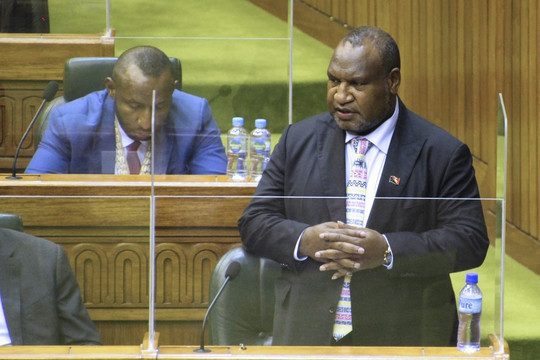On August 31, the Office of Papua New Guinea’s Prime Minister, James Marape, placed full-page advertisements in the ‘National’ and ‘Papua New Guinea Post-Courier’ newspapers urging journalists not to contact the Prime Minister directly.
The circular advised that the Prime Minister and his office will no longer engage in direct correspondence with either domestic or international journalists and media practitioners. From the date of the notice’s publication, all communication must be requested and processed through official government channels. The notice said this measure was to accelerate communications and deliver relevant enquiries to their respective ministries.
According to the PNG Report, the message was also sent through a WhatsApp group consisting of local journalists and media workers where the Prime Minister’s media office supplied instructions for journalists to “work for the good of our country” and “support the PM”.
The office indicated that this direction came from the Prime Minister personally and warned that if the instructions were not respected then the government would limit journalists’ access to prime ministerial press conferences, allowing only one political reporter per news outlet.
According to the Guardian, many local journalists are divided as to whether this measure is due process, or constitutes an attack on press freedom. The Pacific Advocate says other Pacific nations have similar procedures in place, however, variations in efficiency and government commitment to press freedom can limit their effectiveness.
Press freedom concerns have increased in the Pacific in recent months. In August, the neighbouring Solomon Islands ordered censorship of its national broadcaster, the Solomon Islands Broadcasting Corporation, and threatened to ban foreign journalists critical of its relationship with China
The IFJ said: “As press freedom continues to decline across the Pacific, any restriction on journalists is a concerning development. The IFJ urges Prime Minister Marape and Papua New Guinea’s government to maintain press freedom and due consultation with the media, and allow journalists full and unfettered access to government proceedings.”

